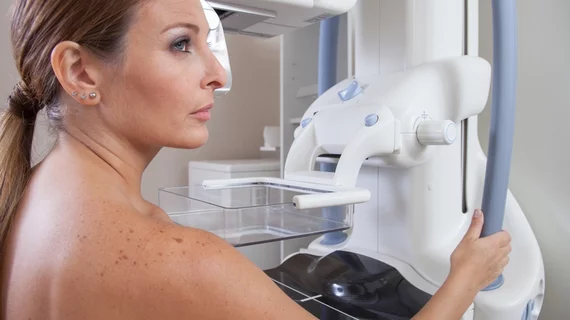AI algorithms can help radiologists achieve a “significant improvement” in their ability to detect breast cancer, according to a new study published in The Lancet Digital Health.
The authors developed and validated an AI model for detecting breast cancer using data from more than 170,000 mammography examinations performed at five institutions in South Korea, the United States and the U.K. Examinations were performed on equipment from numerous vendors, and the data included both screening and diagnostic mammograms. The AI model was based on deep convolutional neural networks and its training consisted of two separate stages.
A group of 14 radiologists was then brought in and asked to read and assess 320 additional mammograms for a separate reader study. Radiologists performed their reads with and without assistance from the algorithm, allowing the authors to explore the AI’s effectiveness.
“The 14 radiologists consisted of seven breast specialists and seven general radiologists,” explained author Hak Hee Kim, MD, University of Ulsan College of Medicine in South Korea, and colleagues. “Both groups were board-certified radiologists, but general radiologists had not been specifically trained in breast imaging whereas breast specialists had been trained in breast imaging for at least six months.”
Overall, the algorithm achieved an area under the receiver operating characteristic curve (AUROC) of 0.959. Its sensitivity was 91.4% and specificity was 86%.
In the reader study, meanwhile, the radiologists achieved an AUROC of 0.810 without AI assistance and 0.881 with AI assistance. The AI’s performance level in the reader study was an AUROC of 0.940. Radiologist sensitivity and specificity both improved with AI assistance. Sensitivity increased from 75.27% to 84.78% and specificity increased from 71.96% to 74.64%.
According to the authors, the study’s findings confirm “that AI has the potential to improve early-stage breast cancer detection in mammography.”
“Such improvements could result in an increase in screen-detected cancers and decrease in interval cancers, which would improve the efficacy of mammography screening,” they wrote. “Real-world clinical benefit needs to be evaluated by future prospective studies.”

